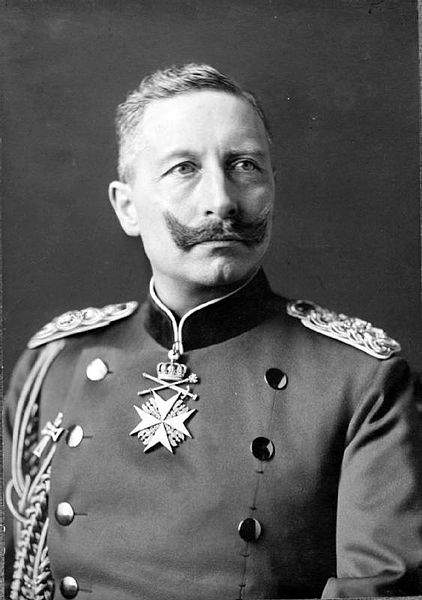The history of ICL
History
Von Hagenbach trial
The first criminal trial with an (what we would now call) international element is that of knight Peter von Hagenbach in 1474.

(Source picture: Wikipedia)
Peter von Hagenbach was the governor of Breisach, now a city in Germany, and under his responsibility, a reign of terror was imposed on Breisach’s inhabitants. The town however revolted and von Hagenbach was captured and put on trial. The court which tried von Hagenbach consisted of 28 judges from the allied states (namely Austria, Berne, France and the towns and knights of the Upper Rhine). The prosecutor charged that the accused had “trampled under foot the laws of God and man”. The court found the accused guilty, deprived him of his knighthood, and condemned him to death.
Most legal scholars see this trial as a landmark event also for another reason, because it was the first international recognition of commanders’ obligations to act lawfully. Peter Von Hagenbach defended himself by arguing that he was only following orders from his master Charles the Bold, the Duke of Burgundy. However, he was convicted of crimes he as a knight was deemed to have a duty to prevent (command responsibility). All scholars conclude that this is the first recorded case to reject the defense of superior orders.
With respect to the international character of the trial: one can have one’s doubts as the judges from the Von Hagenbach tribunal were all drawn from the allied states of one empire, namely the Holy Roman Empire. Nevertheless, by 1474, this empire had degenerated to such an extent that relations between its members were actually quite international and not domestic in nature.
With the rise of the nation state, the possibilities for another international criminal tribunal soon vanished. This meant that it became common to prosecute crimes which were seen as international crimes (think of piracy) at the domestic level, by national and not by international courts. In fact, a devastating world war was needed to give the idea of the international criminal tribunal a truly important boost.
Aftermath of World War 1
.jpg)
(Source picture: Wikipedia)
After WW I, the Treaty of Versailles was signed. Article 227 of this treaty stipulates:
The Allied and Associated Powers publicly arraign William II of Hohenzollern, formerly German Emperor, for a supreme offence against international morality and the sanctity of treaties. A special tribunal will be constituted to try the accused, thereby assuring him the guarantees essential to the right of defence. It will be composed of five judges, one appointed by each of the following Powers: namely, the United States of America, Great Britain, France, Italy and Japan. In its decision the tribunal will be guided by the highest motives of international policy, with a view to vindicating the solemn obligations of international undertakings and the validity of international morality. It will be its duty to fix the punishment which it considers should be imposed. The Allied and Associated Powers will address a request to the Government of the Netherlands for the surrender to them of the ex-Emperor in order that he may be put on trial [emphasis added].
Hence, the Allied and Associated powers were planning to establish an international tribunal to try the German emperor William II.
(Source picture: Wikipedia)
Note that this provision also speaks of William II’s breach of international morality. This shows that even though the Allies were of the opinion that William had breached treaties, he was not charged with a true criminal offence. Thus, criminal law was still an underdeveloped aspect of international law.
These efforts were unsuccessful as William II fled to the neutral Netherlands which refused to extradite him. The Dutch authorities were namely of the opinion that the offence for which extradition was sought was political.
However, the Treaty of Versailles had more provisions on accountability. Articles 228-229 (the right to set up "military tribunals") stipulate:
The German Government recognises the right of the Allied and Associated Powers to bring before military tribunals persons accused of having committed acts in violation of the laws and customs of war. Such persons shall, if found guilty, be sentenced to punishments laid down by law. This provision will apply notwithstanding any proceedings or prosecution before a tribunal in Germany or in the territory of her allies. (…)
Persons guilty of criminal acts against the nationals of one of the Allied and Associated Powers will be brought before the military tribunals of that Power. Persons guilty of criminal acts against the nationals of more than one of the Allied and Associated Powers will be brought before military tribunals composed of members of the military tribunals of the Powers concerned. (…)
And here, on a lower level (namely the one of the soldiers), one can see that criminal law was not absent and that it had to be applied by the judges which could constitute a sort of international tribunal in case the victims of the suspect had different nationalities.
However, this was no success either because Germany did not accept these provisions. As a consequence, a compromise was reached: the Allied Powers would prepare lists of German suspects and the Germans were allowed to try these suspects in their own German courts. However, these trials in the Reichsgericht in Leipzig (1921-1923) were also considered unsuccessful. Scholars have criticized for instance the questionable acquittals and lenient sentences.
So, again, the world had to suffer a terrible war before the idea of establishing a truly functioning international criminal tribunal could be realized.
.jpg)
(Source picture: Wikipedia)
